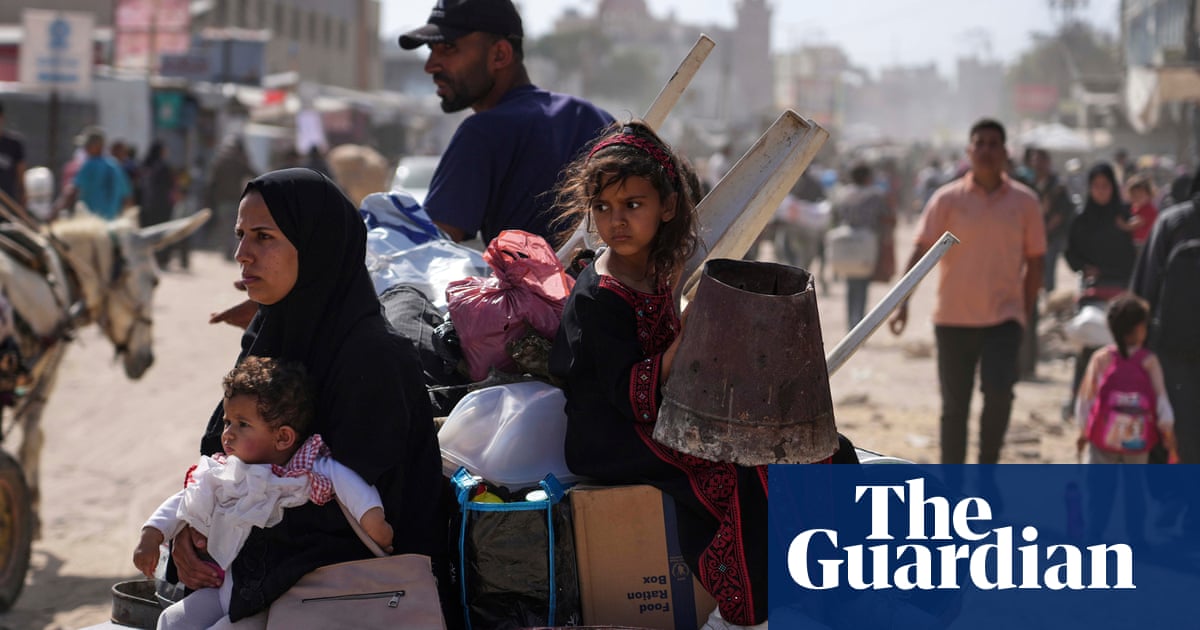Netanyahu Promises Full Control Over Gaza Amid International Backlash










2025-05-19T19:09:00Z

In a significant escalation of the conflict in Gaza, Israeli Prime Minister Benjamin Netanyahu has declared that Israel will take full control of the region. This announcement comes as three of Israel’s key allies—Britain, France, and Canada—have publicly criticized what they describe as an "egregious" escalation of Israel's military campaign and an ongoing blockade that severely restricts humanitarian aid.
In a joint statement released on Monday, the allied nations labeled Israel’s military actions as disproportionate and described the conditions faced by Gazans as "intolerable." They issued a stern warning that they would consider a "concrete" response if Israel’s military campaign does not cease. The statement underscored the high stakes involved, especially as the humanitarian crisis in Gaza deepens.
Earlier the same day, the Israeli military declared the entire city of Khan Younis a combat zone. Subsequent airstrikes resulted in the deaths of over 60 individuals, exacerbating the already dire humanitarian situation. Finance Minister Bezalel Smotrich went so far as to assert that the army would "wipe out" the remnants of Palestinian presence in Gaza.
Amid growing international pressure and the looming threat of famine, Netanyahu announced on Sunday evening that he would ease the eleven-week siege on Gaza in an effort to prevent a potential "starvation crisis." However, the response was criticized as insufficient. The United Nations reported that only nine trucks filled with aid were approved for entry into Gaza, a stark contrast to the pre-war period when an average of 450 trucks per day were delivered to meet the needs of the 2.3 million residents.
Britain, France, and Canada have characterized the measures taken by Israel as "wholly inadequate," warning that continued military actions could violate international law. They have called for a return to the delivery of aid based on humanitarian principles and urged for immediate action to alleviate the suffering of the Gazan population.
Netanyahu's decision to permit even a minimal amount of food into Gaza has drawn ire from far-right elements within his own cabinet. On social media, he shared a video asserting that he was compelled to act due to pressure from international allies. For weeks, Israeli officials have insisted that there were no shortages in Gaza, but Netanyahu revealed that even his staunchest supporters were expressing concern over the images of starvation emerging from the region.
"They told me: 'We cannot accept images of hunger, mass hunger. We cannot stand that,'" Netanyahu recounted. He acknowledged the growing desperation in Gaza, which he indicated might lead Israel to a "red line" that could result in a loss of control, although his statements lacked precise elaboration on what that may entail.
While he did not specify which allies were critical, Donald Trump, following a recent regional visit that excluded Israel, remarked on the dire situation in Gaza, noting, "a lot of people are starving" and expressed his intention to address the unfolding crisis.
In recent days, Israel's military has intensified airstrikes, leading to the deaths of hundreds of Palestinians over the weekend alone. Among the targeted sites are the already overwhelmed hospitals in Gaza. The ongoing conflict has led to a staggering death toll of 53,486, the majority of whom are civilians.
The Israeli military’s declaration of central Khan Younis as a combat zone has forced many civilians to evacuate repeatedly, compounding the challenges faced by the displaced, many of whom are already suffering from hunger and have lost their homes.
Smotrich, a proponent of aggressive military tactics against Hamas, defended Netanyahu's decision to allow limited humanitarian aid, framing it as a strategy to maintain military operations in Gaza. He stated, "Now we conquer, cleanse and stay—until Hamas is destroyed," at a news conference, indicating a long-term military commitment to the region. He further explained that the strategy would involve relocating the population to the southern areas of Gaza, ultimately suggesting a move to third countries under a plan associated with President Trump.
Netanyahu has justified the blockade on Gaza by alleging that Hamas diverts food aid meant for civilians. While there have been accounts of looting by armed groups amid the escalating hunger crisis, Israeli officials have not disclosed specific data on the extent of aid theft or provided concrete examples of how supply chains have been compromised.
Humanitarian organizations, which have extensive experience operating in conflict zones, have asserted that their aid is not being diverted. Israel aims to replace existing aid distribution networks with central distribution points guarded by military personnel and managed by armed contractors. The Gaza Humanitarian Foundation, a Swiss-registered organization, has been identified as the entity that will oversee these operations. Its director, Jake Woods, a former U.S. Marine, stated that they expect to be operational by the end of the month, although questions remain regarding funding sources for the aid.
Notably, the UN and other humanitarian organizations currently providing aid have announced they will not collaborate with the Gaza Humanitarian Foundation, citing concerns that the armed contractor's involvement compromises essential humanitarian principles and could endanger their staff.
Since the onset of the conflict, Israel has faced immense international scrutiny. The military offensive was initiated following cross-border attacks by Hamas that resulted in the deaths of 1,200 individuals, mostly civilians, in Israel, alongside the abduction of 250 people, many of whom are believed to have perished.
 Aaliyah Carter
Aaliyah Carter
Source of the news: The Guardian